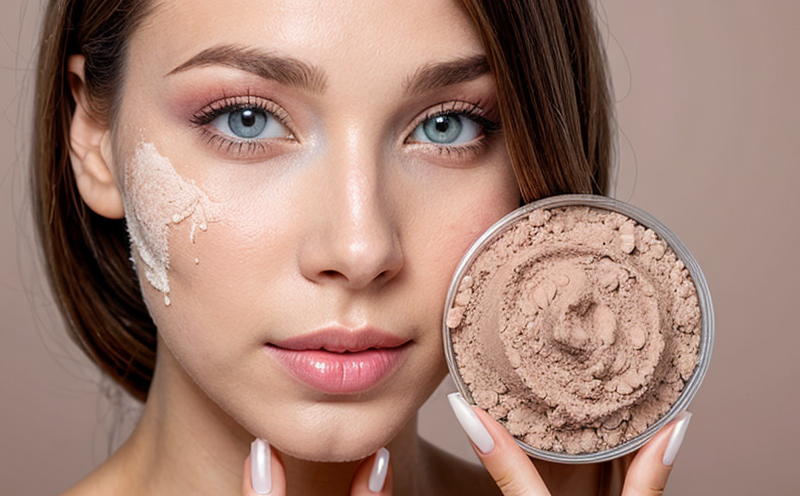Essential Oil Allergen Testing in Cosmetics
Essential oils are a crucial component of many cosmetic products, adding fragrance and therapeutic benefits. However, these natural extracts can also pose significant allergenic risks to consumers with sensitivities or allergies. Conducting essential oil allergen testing is essential for ensuring product safety and compliance with international standards.
The process involves identifying potential allergens within the essential oils used in cosmetic formulations. This can include common allergens such as limonene, linalool, and other components that trigger allergic reactions. The test aims to ensure these substances are present at levels that do not exceed safety thresholds established by regulatory bodies.
Testing is carried out using advanced analytical techniques like High-Performance Liquid Chromatography (HPLC) and Mass Spectrometry (MS). These methods allow for precise quantification of individual components, enabling accurate detection of even trace amounts of allergens. The results are then compared against internationally recognized standards such as ISO 21756:2014, which sets limits on certain allergenic substances in cosmetic products.
Understanding the potential risks associated with essential oils is critical for quality managers and compliance officers responsible for ensuring product safety. By incorporating this testing into their development process, companies can demonstrate a commitment to consumer health and well-being. Additionally, this step ensures that products meet stringent regulatory requirements across different markets, enhancing brand reputation.
For R&D engineers and procurement professionals, understanding the intricacies of essential oil allergen testing provides valuable insights into ingredient selection and formulation optimization. It also helps in identifying safer alternatives when necessary. This knowledge supports innovation while maintaining high standards of quality control throughout the supply chain.
The importance of this test cannot be overstated, especially given increasing consumer awareness about product safety and ethical sourcing practices. Implementing robust testing protocols not only protects end-users but also contributes positively to environmental sustainability efforts by reducing waste associated with defective products.
Why Choose This Test
Selecting essential oil allergen testing for cosmetic products offers numerous benefits, making it an indispensable part of any quality assurance program. Firstly, it ensures product safety by identifying and managing potential allergens that could harm consumers with sensitivities or allergies.
Secondly, compliance with international standards is crucial for maintaining market access to various regions around the world. Meeting these requirements demonstrates a company's commitment to regulatory adherence, which enhances trust among customers and stakeholders alike.
Thirdly, incorporating this testing into research and development processes fosters continuous improvement in formulation design. Engineers gain valuable data on ingredient compatibility and performance, allowing them to create more effective and safe products.
Furthermore, choosing essential oil allergen testing supports ethical sourcing practices by encouraging the use of safer alternatives when necessary. This approach contributes positively towards sustainability goals set forth by organizations like the United Nations Environment Programme (UNEP).
International Acceptance and Recognition
- ISO/IEC 17025: Accredited laboratories adhere to this standard for ensuring competence in testing and calibration. Compliance guarantees the reliability of test results.
- EU Cosmetics Regulation: Requires manufacturers to identify allergens present at levels exceeding thresholds specified by regulation (EC) No 1223/2009.
- FDA Cosmetics Regulations: Emphasizes the importance of safe ingredients and requires thorough evaluation before market release.
- Japanese Cosmetic Act: Sets stringent requirements for ingredient labeling, including allergen identification where necessary.
Environmental and Sustainability Contributions
By conducting essential oil allergen testing, laboratories contribute significantly to environmental sustainability efforts. The process helps reduce waste associated with defective products that fail safety checks due to hidden allergens.
Incorporating robust testing protocols ensures that only safe ingredients make it into final formulations. This reduces the likelihood of recalls and returns, minimizing resource consumption throughout the supply chain.
Additionally, this commitment to product safety promotes responsible sourcing practices, encouraging manufacturers to choose sustainable suppliers who prioritize ethical production methods. Such collaborations help minimize ecological impacts while supporting fair labor practices.





